Innovate for the Future! The 2024 China Textile Industry Two-Integration Convergence Conference Convenes in Yibin
The 2024 China Textile Industry Two-Integration Conference was held in Yibin City, Sichuan Province on July 26. The conference was hosted by the China National Textile and Apparel Council (CNTAC), and jointly undertaken by the Information Department of CNTAC and Yibin Silya Group Co., Ltd.
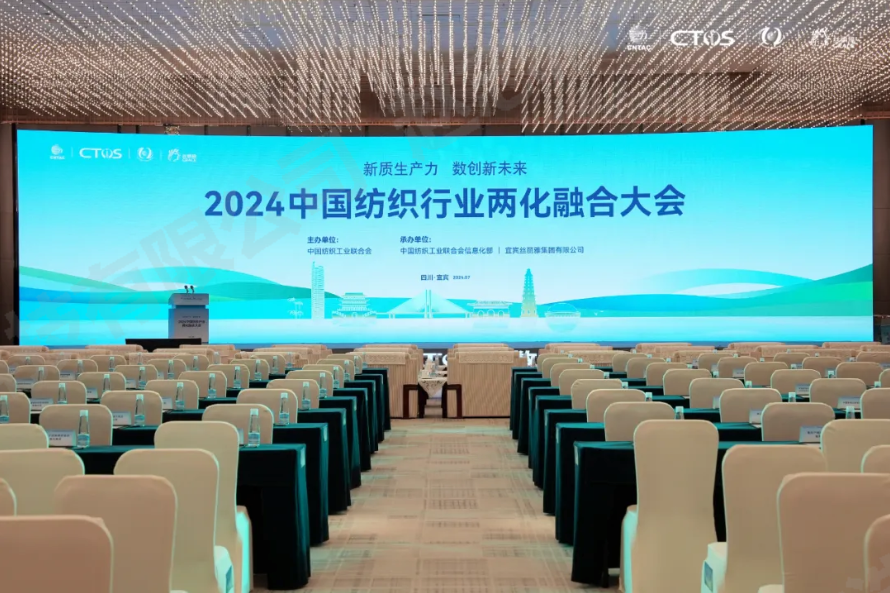
To promote high-quality development of the national textile industry, continuously meet the people's ever-growing needs for a better life, proactively seize new opportunities in the integration of industrialization and informatization, and promote the transformation of the textile industry towards high-end, intelligent, and green development, on July 26, 2024 China Textile Industry Integration of Industrialization and Informatization Conference was held in Yibin City, Sichuan Province. The conference was hosted by the China National Textile and Apparel Council (CNTAC), and jointly organized by the Information Department of CNTAC and Yibin Silya Group Co., Ltd.
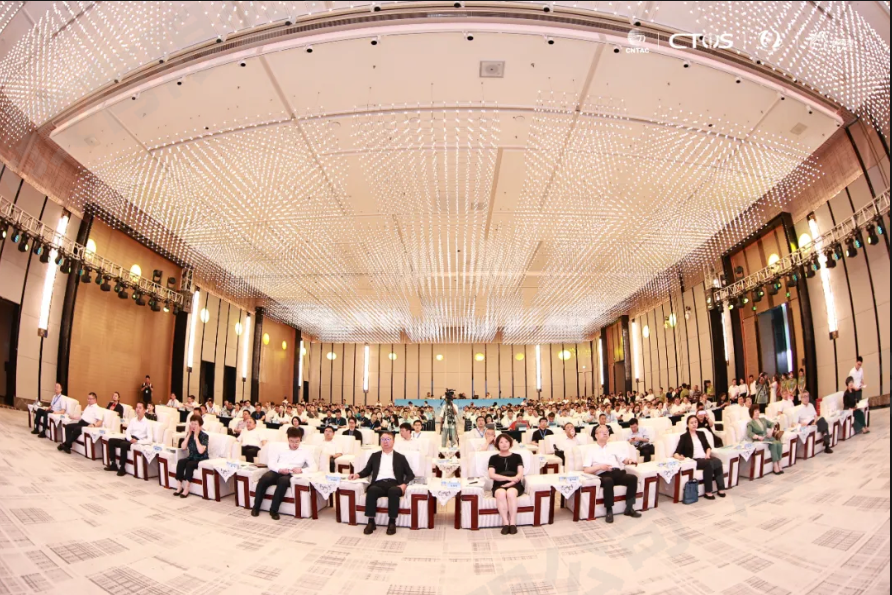
President of the China National Textile and Apparel Council Sun Ruizhe Secretary-General Xia Lingmin Vice President Yan Yan Member of the Expert Advisory Committee Cao Xuejun Director of the Textile Division, Department of Consumer Goods Industry, Ministry of Industry and Information Technology Yang Liu Member of the Standing Committee and Vice Minister of the Sichuan Provincial Department of Economy and Information Technology Feng Jinhua Member of the Standing Committee and Executive Vice Mayor of Yibin Municipal Committee Xue Qing Member of the Standing Committee and Vice Mayor of Yibin Municipal Committee Chen Guangyu Professor and Doctoral Supervisor, College of Materials Science and Engineering, Donghua University; Director of the Key Laboratory of High-Performance Fibers and Products, Ministry of Education Wang Huaping and other leaders and guests attended the conference. Representatives from relevant departments and professional associations of the China National Textile and Apparel Council, relevant leaders from Sichuan provincial departments (units) and Yibin municipal departments (units), and over 400 authoritative experts, scholars, and industry representatives from provincial, municipal, and county industrial and information technology departments, industry associations, and key textile and related enterprises gathered together to witness a new chapter in the digital transformation of the textile industry. Vice President of the China National Textile and Apparel Council Yan Yan presided over the morning's plenary session.
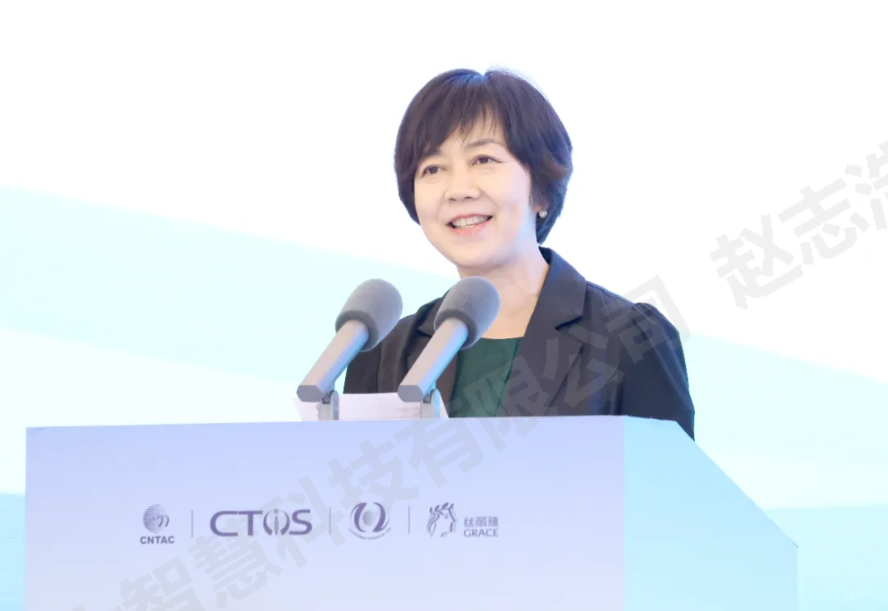
Implementing Reform Concepts, Building a Development Framework
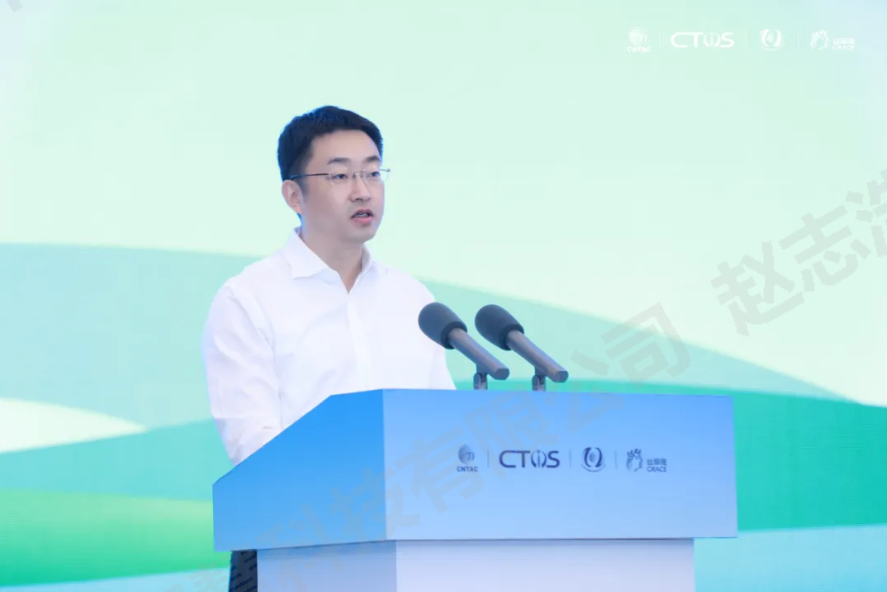
Xue Qing, Member of the Standing Committee and Executive Vice Mayor of Yibin Municipal Committee In his address, stated that Yibin City is both the southern wing center city of the Chengdu-Chongqing economic circle and an important node city of the Yangtze River Economic Belt, and also a city with a long history of textile industry. Currently, Yibin City has formed a complete industrial ecosystem integrating fiber, silk, spinning, dyeing, weaving, and clothing. In 2023, the city's textile industry output value reached 22.3 billion yuan. In recent years, Yibin has highlighted the integrated development of information technology and industrialization, using "intelligent transformation and digital upgrading" as the focus to promote the transformation and upgrading of traditional industries such as light industry and textiles, and accelerating the development of a "dual base" of green bio-based fiber industry and differentiated yarn industry. Currently, Yibin has initially built a "4+4+4" modern industrial system of four leading industries (including high-quality liquor), four traditional industries (including light industry and textiles), and four future industries (including new energy storage). In the future, Yibin will deeply implement fund investment attraction and industrial chain investment attraction, accelerate the improvement of the textile industry ecosystem, accelerate the promotion of the "1+5+N" textile industry layout, and strive to build a world-class bio-based textile industry base and a textile industrial cluster with an output value of over 100 billion yuan.
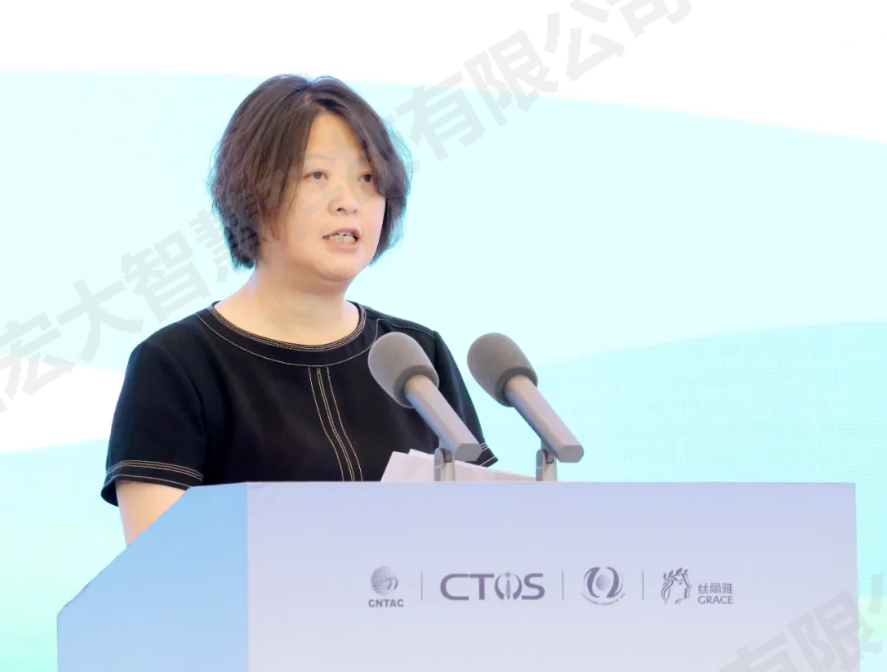
Feng Jinhua, Member of the Standing Committee and Vice Minister of the Sichuan Provincial Department of Economy and Information Technology In her address, stated that new-generation information technology is changing our lives at an unprecedented speed, and artificial intelligence is triggering industrial upgrading and transformation. Digital transformation has become an important path and inevitable choice for promoting the high-end, intelligent, and green development of traditional industries. The integration of industrialization and informatization in the textile industry is a specific measure to implement the development of new-quality productivity and promote new industrialization. Next, Sichuan will encourage key enterprises to use digital technology for comprehensive and all-round transformation; promote the collaborative development of small and medium-sized enterprises to promote deep industrial transformation and upgrading; adhere to technological innovation to drive industrial innovation; focus on healthy and green experiential consumption needs; accelerate core technology breakthroughs and iterative R&D; and use biomass fibers and other iconic products to lead the high-quality development of industrial clusters; actively seize the major strategic overlapping opportunities of the Chengdu-Chongqing economic circle construction, strengthen industrial chain collaboration, rely on key parks, actively undertake industrial transfer, and strive to build a modern western apparel industrial cluster.
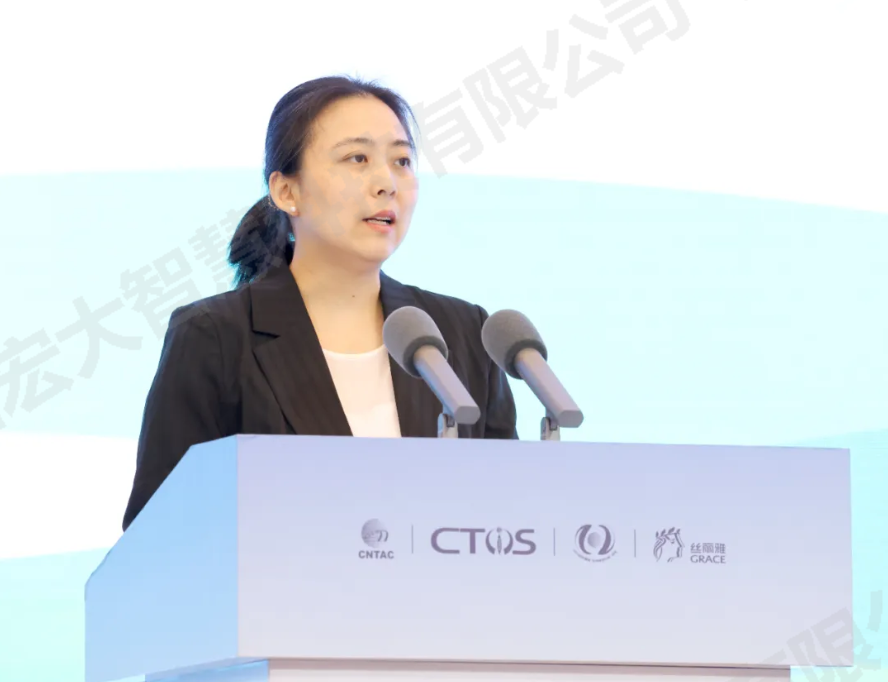
Yang Liu, Director of the Textile Division, Department of Consumer Goods Industry, Ministry of Industry and Information Technology In her address, pointed out that with the progress of science and technology and the in-depth development of informatization, the textile industry is facing unprecedented development opportunities. The deep integration of industrialization and informatization has become a key link in building new-quality productivity, promoting the transformation and upgrading of the textile industry, and achieving high-quality development. As the industry's supervisory department, the Ministry of Industry and Information Technology has always attached importance to the integrated development of digitalization and industrialization in the textile industry and has taken active measures to promote the improvement of quality and efficiency of the industry. In the future, it will continue to deepen the integration of industrialization and informatization, strengthen policy guidance, organize the preparation of digital transformation implementation plans; strengthen innovation-driven development, encourage accelerating technological innovation; strengthen scenario applications, promote the application of big data, cloud computing, and AI technologies in the textile industry; strengthen equipment upgrades and technological transformation; and strengthen collaborative efforts to improve the industry's ability to integrate industrialization and informatization.
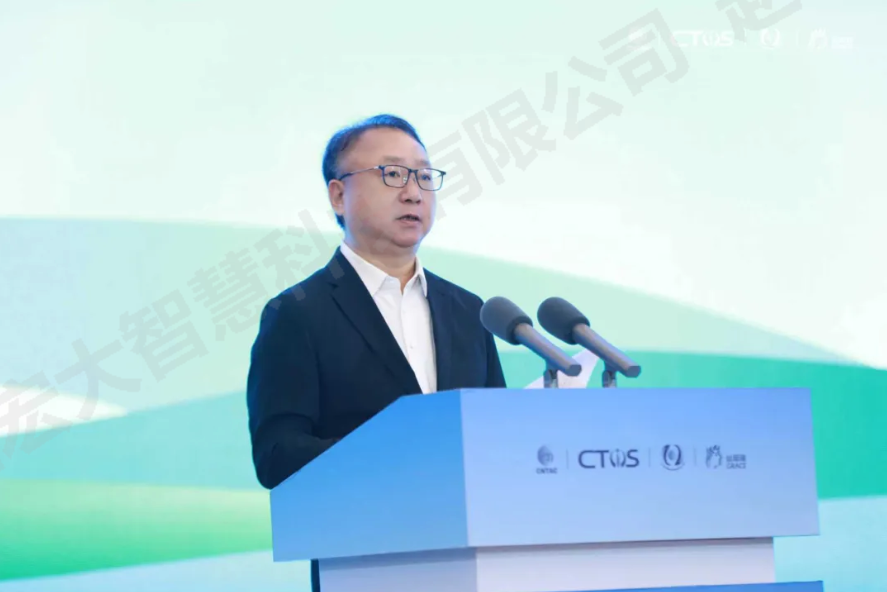
Sun Ruizhe, President of the China National Textile and Apparel Council In his address, stated that the textile industry is a key demonstration industry for Yibin to build a "4+4+4" modern industrial system. In recent years, Yibin has fully grasped the strategic opportunity of "East Textile West Relocation", and a number of excellent enterprises such as Silya have emerged, becoming a strategic fulcrum for the rise of the western textile industry in the new era.
The textile industry is one of the earliest industries to practice the integration of industrialization and informatization, and has made significant progress in areas such as platform design, intelligent manufacturing, flexible supply chains, and smart marketing. As of March this year, the industry's integration of industrialization and informatization development level has reached 62.2. The CNTAC, coordinating national strategies and industry realities, has issued the "Action Outline for Building a Modern Textile Industry System (2022-2035)", which lists the action to promote the deep integration of the digital economy and the textile industry as one of the seven key actions, aiming to improve quality and efficiency, and promote industrial innovation in manufacturing technology, industrial systems, and business models. Sun Ruizhe pointed out that to fully leverage the key role of the integration of industrialization and informatization in promoting new industrialization in the textile industry, it is necessary to exert efforts in multiple dimensions on the design, product, and consumption ends, guiding and promoting enterprise digital transformation, intelligent manufacturing upgrades, and brand quality improvement. To this end, he offered three suggestions: First, consolidate the foundation and strengthen the basics; second, maintain a forward-looking approach and plan for the future; and third, strengthen collaboration and improve the ecosystem.
Deep Integration of Industrialization and Informatization, Empowering Digital and Intelligent Transformation
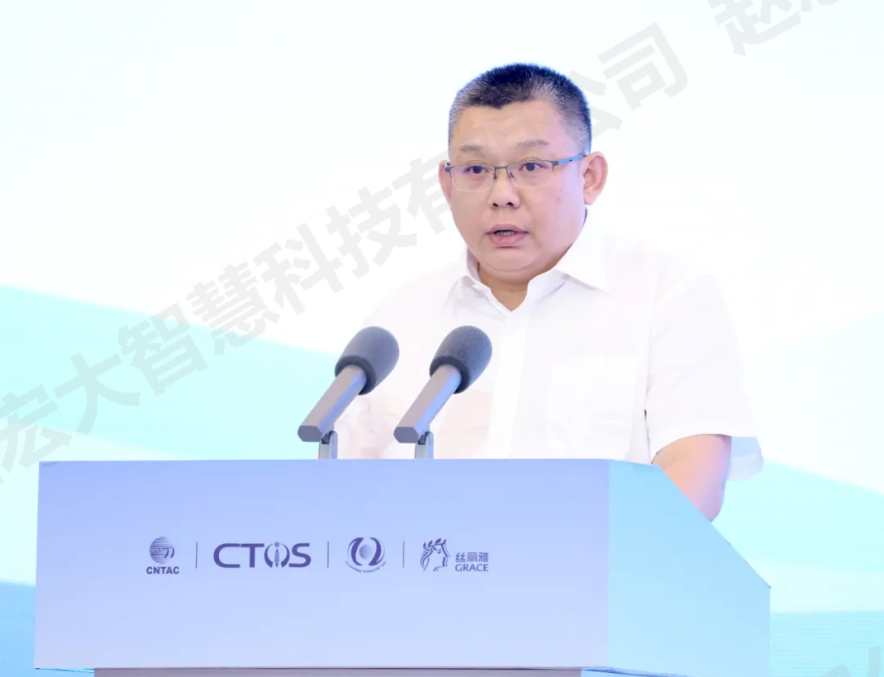
At the conference, Yin Qiang, Director of the Information Department of the China National Textile and Apparel Council The keynote report, titled "Accelerating the Deep Integration of Industrialization and Informatization to Promote New Industrial Productivity," briefly introduced the economic operation of the textile industry and elaborated on the digital development of the textile industry. In recent years, the application of new generation information technology in the textile industry has accelerated, resulting in continuous emergence of new achievements and applications in the textile industry. Digital technology has achieved significant results in many application scenarios in the industry.
In the "Action Outline for the Construction of a Modern Textile Industry System (2022-2035)" released by the China National Textile and Apparel Council last year, seven key actions were proposed, including the construction of 15 industry digital transformation service centers by 2035, the selection of 60 advantageous industrial clusters with different characteristics as pilot projects, and the provision of professional digital transformation services to 30,000 small and medium-sized enterprises.
In order to comprehensively promote the digital transformation of the textile industry, the main measures to promote the digital transformation of the textile industry in the future are: First, based on the digital needs of enterprises, encourage small and medium-sized enterprises to start with aspects where the need for digital transformation is urgent, and accelerate the promotion of online marketing, production control, online design, and capacity sharing, extending from point to point to the entire business and full-process digital transformation. Second, strengthen the depth of data application and improve the ability of data monetization around data collection, statistics, analysis and processing, and cloud computing, and promote enterprises to achieve business dataization and data business. Third, cooperate with textile industry research institutes and high-quality service providers to conduct research on common digital technologies in key areas of the industry and differentiated digital technologies in sub-sectors, solving pain points and difficulties in typical application scenarios of enterprise digitalization. Fourth, in key textile regions, jointly build "Textile Industry Digital Transformation Promotion Centers" and "Textile and Apparel Big Data Centers" with local governments, industrial clusters, and high-quality service providers, support key textile enterprises in building "enterprise-level application platforms for digital transformation," and play an important role in key common technology research and development, application scenario combing, and knowledge reuse for enterprises to accelerate digital transformation; support industry associations and local governments in building industry-level application platforms for digital transformation in key textile regions, achieve collaborative manufacturing among enterprises, extend the industrial value chain, and promote the construction of a modern textile industry system.
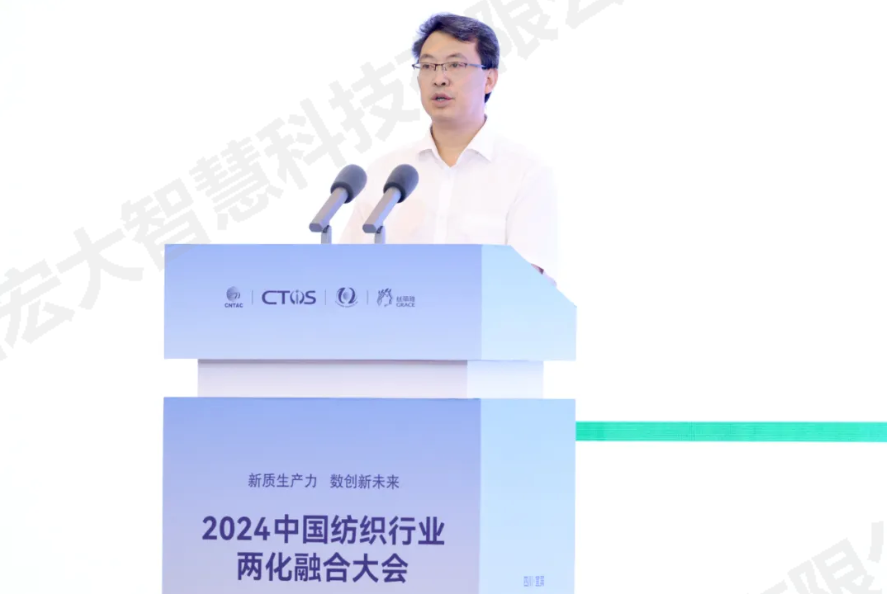
Hu Bo, Party Secretary and Chairman of Yibin Siliya Group Co., Ltd. In his keynote speech titled "Innovation Leading, Digital Empowerment, Weaving a New Future Together," he emphasized that as a member of the textile industry, Siliya Group has seized the opportunity of the country's strong support for the development of "the integration of industrialization and informatization," using the "4+3+3" path to integrate into the overall development trend of the textile industry, promote the construction of Sichuan's modern textile industry system, drive the accelerated development of Yibin's 100 billion textile industrial cluster, and put forward three major directions for the group's integrated development. First, as a local state-owned enterprise, we must adhere to the long-term development of industries related to national economy and people's livelihood, adhere to improving the scientific and technological innovation capabilities of Siliya Group, adhere to the concept of industrial integration and development, and adhere to the direction of green and low-carbon development, establishing the industrial development concept of "four adherences" at the thinking level. Second, Siliya Group focuses on the two historical missions of "relocation" and "transformation," integrating the concept of intelligent manufacturing into the company's industrial development and the entire relocation process, and clearly proposing the greening of raw materials, the greening of production processes, and the greening of energy, constructing a "three-green park" from a strategic perspective with "three-green manufacturing." Third, from a practical perspective, promote the "three leading" empowerment of high-quality development of the company: technological innovation leading, green and low-carbon leading, and digital intelligence leading.
At the same time, Hu Bo issued five appeals to the industry: First, build consensus and strengthen confidence in industry development; second, strengthen collaboration and work together towards the "Belt and Road"; third, innovation-driven, cultivate new industrial forces; fourth, green development, promote industrial recycling; fifth, intelligent transformation and digital transformation, strengthen industrial integration and development.
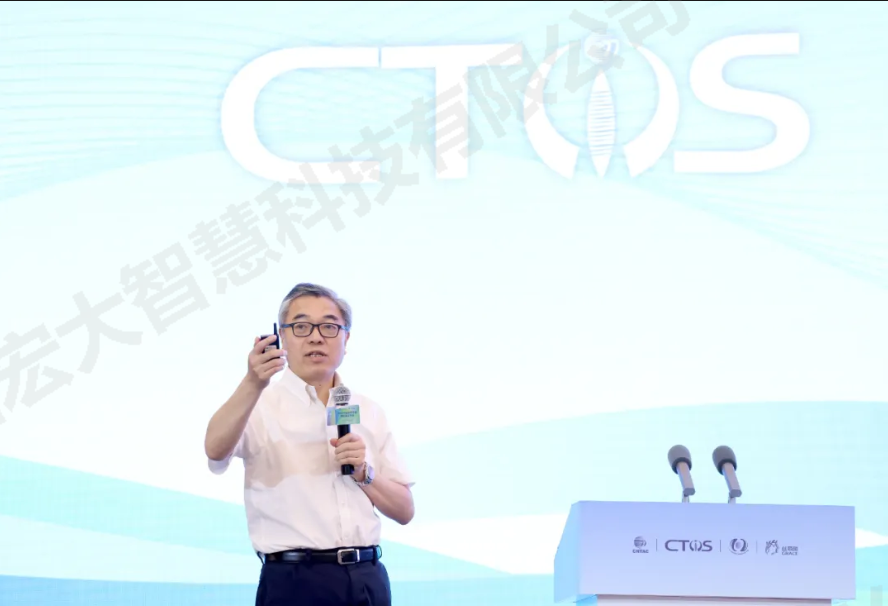
Wang Huaping, Professor, Doctoral Supervisor, and Director of the Key Laboratory of High-Performance Fibers and Products of the Ministry of Education, College of Materials Science and Engineering, Donghua University Under the theme of "Intelligent Manufacturing of Fibers: "Wisdom" Upgrade, "Energy" Dynamic Future," he elaborated on the historical changes and basic concepts, technological evolution, standard system, implementation effectiveness, and industry planning of intelligent manufacturing, and introduced the special support and connotation of intelligent manufacturing of chemical fibers.
Wang Huaping gave a detailed explanation from the perspective of scientific basis, including the mechanism of polymer and spinning, the construction of fiber manufacturing system, the technical system of intelligent fiber manufacturing; the mechanism data simulation modeling of intelligent production, robots and equipment, collaborative scheduling, personalized customization; intelligent detection of spinneret plate scraping and detection, yarn and yarn cake detection, online detection and soft measurement of tension and evenness; intelligent logistics of supply chain, customer platform, intelligent warehousing, and three-dimensional loading; intelligent control of DCS and APC, MES, EMS systems and quality control, fiber big data platform, real-time linkage between upstream and downstream of the industrial chain, and collaborative development of supply chain and industrial chain.
Looking to the future, Wang Huaping gave trend suggestions: strengthen the industrial "five bases" of basic components, materials, processes, technologies, and software to enhance industrial foundation capabilities; use intelligent manufacturing technology to promote high-quality carbon fiber and polyamide 6 melt direct spinning to create new system development; further expand the simulation of all links in the entire process of fiber production and processing, and achieve full-process coverage of new simulation models; establish a new manufacturing model through industrial chain collaborative manufacturing; integrated development of unit-workshop-factory; deep integration of artificial intelligence and product development; high degree of digital twinning of product development system; industry interconnected flexible multi-objective collaborative manufacturing; develop a smart manufacturing system, create a new manufacturing model, and form a full industrial chain covering raw material development, polymerization technology and fiber preparation, textiles and products, solving the bottleneck of industrial homogeneity.
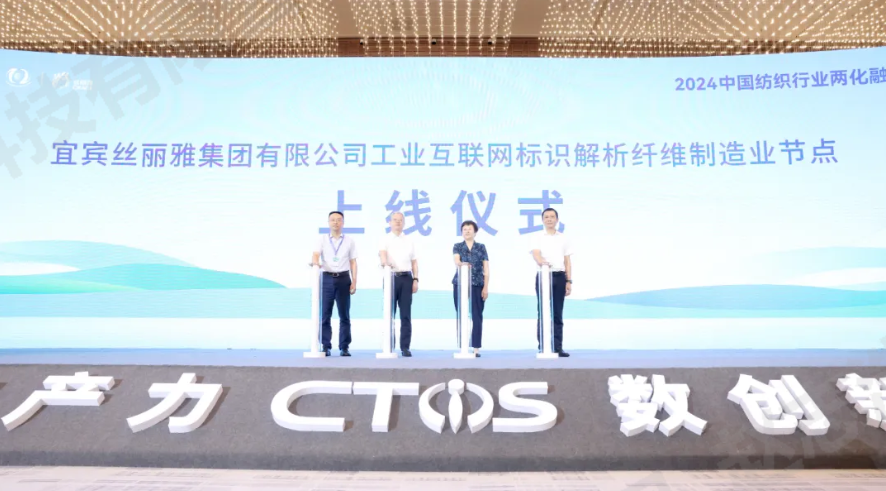
The Yibin Siliya Group Co., Ltd. Industrial Internet Identification Resolution Fiber Manufacturing Industry Node Launch Ceremony was held simultaneously. Xia Lingmin Secretary-General of China National Textile and Apparel Council Cao Xuejun Member of the Expert Advisory Committee of China National Textile and Apparel Council Director of Big Data and Informatization Department, Sichuan Provincial Department of Economy and Information Technology Li Shaokun Deputy Secretary of the Party Committee and Chairman of the Trade Union of Yibin Siliya Group Co., Ltd. Li Wei
Jointly participated in the launch ceremony.
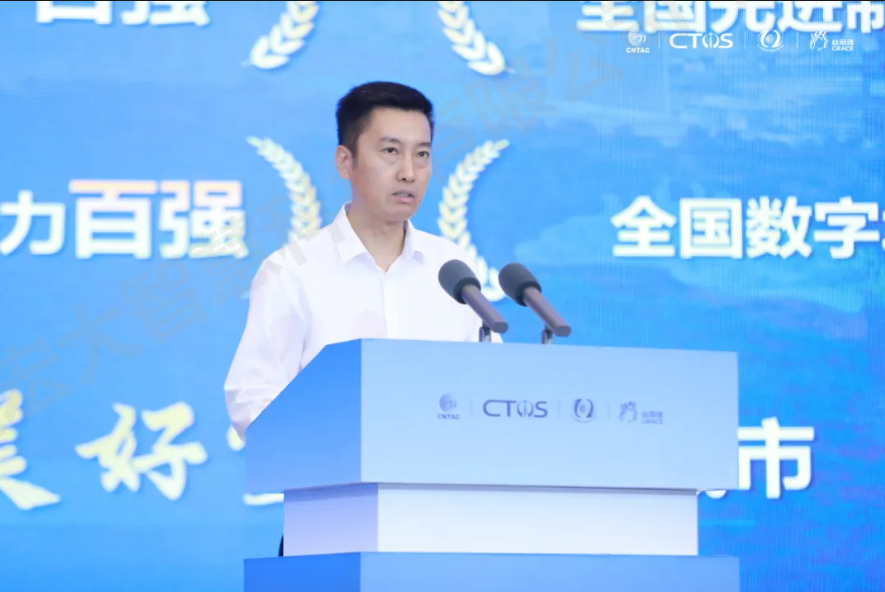
At the conference, Investment promotion, striving for a 100 billion cluster Chen Guangyu, member of the Standing Committee of the Yibin Municipal Committee and Deputy Mayor, gave a promotion speech on textile industry investment attraction. Yibin's textile industry follows a "1+5+N" industrial layout, with Siliya Group as the leading chain owner, and Xuzhou District, Pingshan County, Gaoxian County, Nanxi District, and Junlian County as the key areas, with other counties and districts integrated development. This has formed a complete industrial chain integrating fiber, silk, spinning, dyeing, weaving, and clothing. It is worth mentioning that the textile industry is one of the six major advantageous industries implemented by the Sichuan Provincial Committee and Provincial Government, and also one of the four traditional industries that Yibin focuses on developing. Currently, five universities in Yibin have opened textile-related majors, and tailor-made "base classes" and "trainee classes" for textile enterprises, which can meet the needs of skilled personnel development for textile enterprises in Yibin. He hopes that more enterprises will choose Yibin, care about Yibin, and work hand in hand with Yibin to jointly explore a new future for the textile industry.
At the meeting, the relevant county (district) people's governments of Yibin City signed agreements with enterprises that have invested and settled in the area, and Yibin Silya Group Co., Ltd. signed agreements with well-known terminal brand enterprises in the industry. These series of signings further strengthened the close cooperation between the upstream and downstream of the textile industry chain, laying a solid foundation for the take-off of Yibin's textile industry.
Exchange technical experience and disseminate the achievements of digital transformation
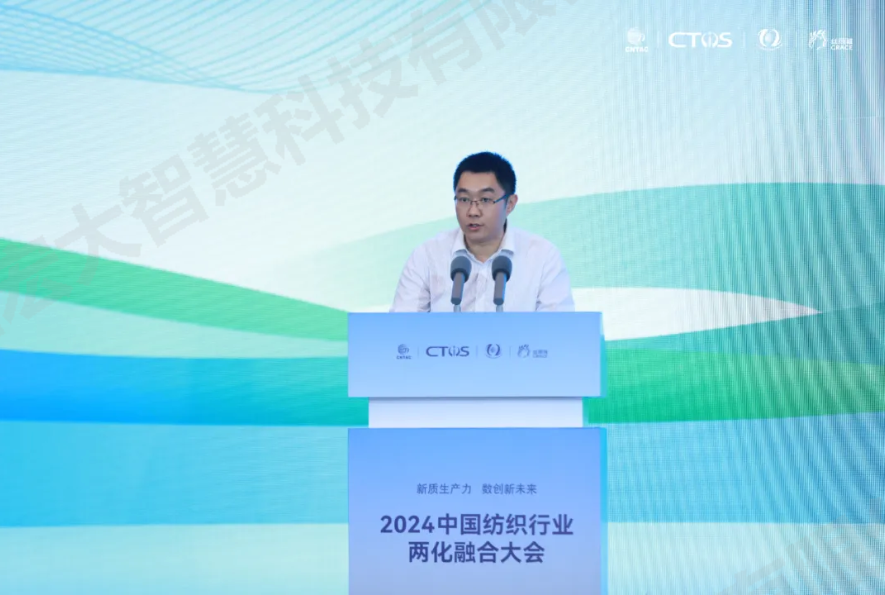
Digital transformation is an important part of a company's overall strategy. The conference specially invited representatives from solution providers in various fields within the industry to exchange experiences and share achievements on currently popular topics such as digital twins, artificial intelligence, diagnostic early warning, and data mining. Liu Bin, Deputy Director of the Two-in-One Integration Promotion Office, Information Department, China National Textile and Apparel Council presided over this segment.
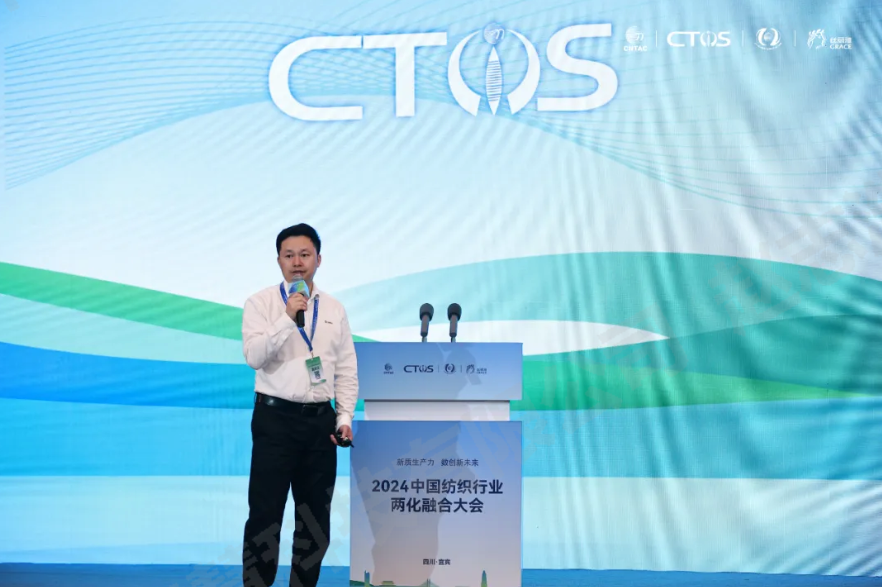
The construction and implementation of digital factories is a necessary path for the digital transformation of manufacturing enterprises and an important part of the innovation and upgrading of the manufacturing process. Chen Chuanjun, Deputy General Manager of Beijing Institute of Automation (Beijing) Science and Technology Development Co., Ltd. Under the theme of "Digital Twin Drives the Construction of Digital Factories," he detailed the opportunities and challenges facing the construction of digital factories. Constructing digital factories is an important component of innovation and upgrading of the manufacturing process, including upgrading enterprise concepts, product innovation upgrades, manufacturing process upgrades, and manufacturing model innovation. To address these challenges, he proposed solutions for empowering the construction of digital factories through digital twin technology, including simulation analysis, fault handling, and remote maintenance. He emphasized the deep integration of digital twin technology and intelligent logistics to achieve model building, simulation refinement, intelligent monitoring, fault diagnosis, scheduling optimization, remote collaboration, virtual debugging, and digital delivery, thereby promoting the comprehensive digitalization and intelligent operation of textile enterprise production, enabling enterprises to reduce costs, improve quality, and increase efficiency.
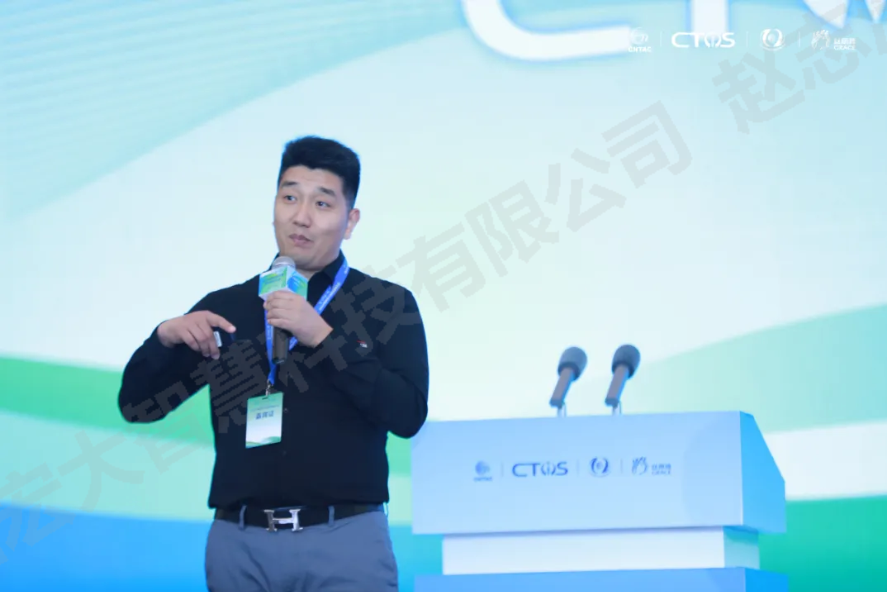
Li Ning, Executive Vice President of Shaoxing Huansi Wisdom Technology Co., Ltd. In the theme exchange "Huansi Joins Hands with AI Innovation Technology to Help the Digital Transformation of the Textile Industry," using Huansi's cooperation with Huawei's AI vision as a case study, he introduced how to manufacture AI vision products favored by textile and apparel companies. The current industry pain points include poor manual fabric inspection, low efficiency, and high costs, which severely restrict the improvement and enhancement of enterprise production efficiency and quality. More accurate, faster, and lower-cost intelligent quality inspection is the inevitable choice for the future manufacturing industry. Li Ning introduced that AI vision applications are integrated into every link of the industrial chain, including fabric inspection, intelligent fabric inspection machines, simple interactive systems, and fabric twin simulations. He also analyzed the relevant investment returns and showed videos of actual scenarios of customer installation and implementation cases such as lace samples and intelligent fabric inspection.
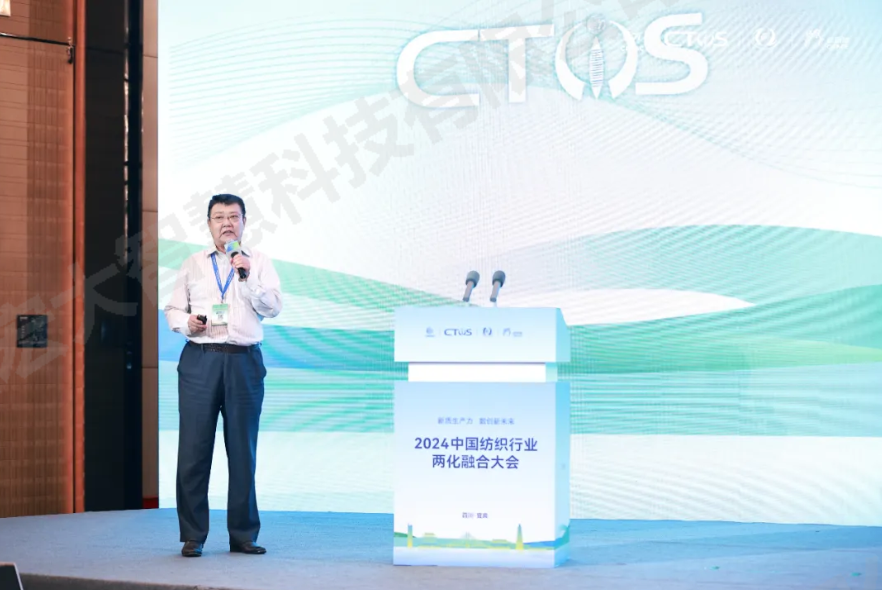
Textile air conditioning is important equipment in the production workshops of textile enterprises. Digital transformation will effectively adjust the temperature, humidity, flow rate, dust concentration, and freshness of the air in the workshop. Sun Jianzhong, Executive Deputy General Manager of Shandong Jinxin Air Conditioning Group Co., Ltd. provided an in-depth exchange on "Advantages of Digital Transformation of Textile Air Conditioning Automatic Control." He stated that the digital transformation of textile air conditioning, through the introduction of advanced technologies such as the Internet of Things, big data, and artificial intelligence, promotes the intelligent transformation and upgrading of textile air conditioning systems, with significant advantages in improving production efficiency, reducing energy consumption, improving product quality, and enhancing equipment maintenance capabilities. It is also of great significance to the sustainable development of the textile industry and the improvement of enterprise competitiveness and is imperative.
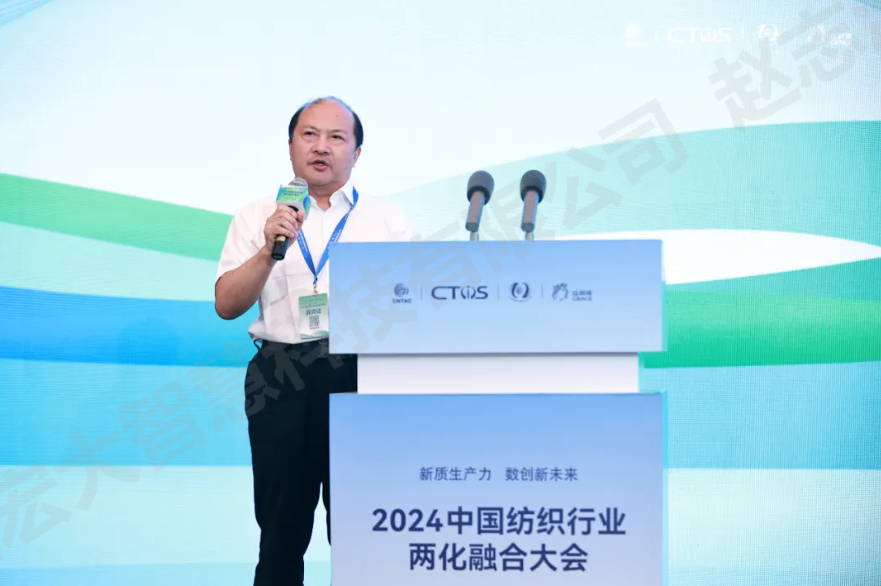
Gu Ren, Chairman and General Manager of Changzhou Hongda Intelligence Technology Co., Ltd. shared his insights under the theme of "HawkVision's Leading Intelligent Technology Supports High-Quality and Green Development of the Printing and Dyeing Industry." He stated that intelligent manufacturing in the printing and dyeing industry has entered a new stage of innovative development, and printing and dyeing equipment is developing towards high-end, intelligent, and green directions. Digital printing and dyeing manufacturing based on the industrial internet, big data, artificial intelligence, and digital twin technology has become an important direction of development. Equipment intelligence is an important foundation and support for the printing and dyeing industry to achieve intelligent manufacturing, and intelligent detection technology and artificial intelligence technology have become new productive forces in the printing and dyeing industry.
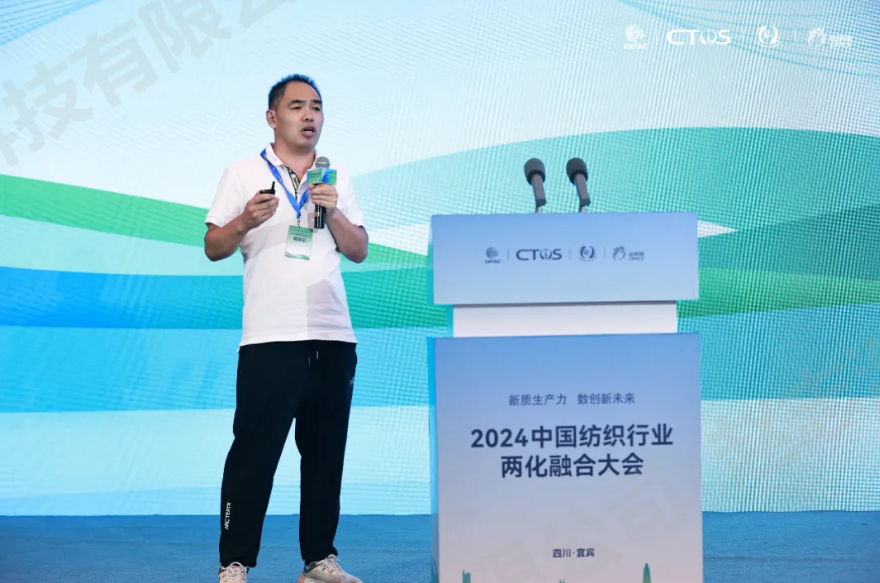
Liu Hongwei, General Manager of Hangzhou Tianfudetai Information Technology Co., Ltd. Business Department Focusing on the theme of "Deeply Exploring Data Value and Promoting the Development of New Productive Forces in the Textile Industry," he introduced Tianfu's focus on the textile printing and dyeing industry, carrying out comprehensive digital and platform services, serving more than 2,000 textile printing and dyeing organizations at home and abroad. Liu Hongwei analyzed the importance of data value, the value of data as a new productive force, as well as its role as an information carrier and decision-making basis; and listed the applications of data in the new productive forces of textiles, including intelligent laboratories, intelligent production command centers, holographic projection and touch operation, intelligent voice analysis and data feedback, intelligent defect detection, intelligent visual fabric inspection, intelligent online color difference detection, intelligent logistics, intelligent setting, intelligent recommendations, and the significance of intelligent energy management.
During the meeting, the representatives also conducted field visits to Yibin Tianzhihua Textile, Hongqu Industry, and Sichuan Silya Fiber Technology, experiencing firsthand the vivid practice of digital transformation in the textile industry. They also exchanged and connected on issues such as industrial chain cooperation and technological innovation, sharing new opportunities and seeking common development.
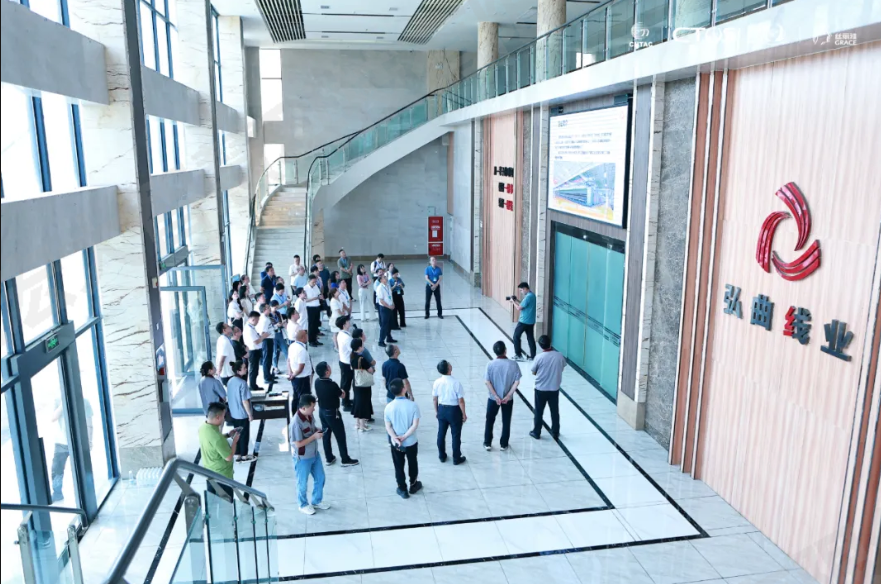
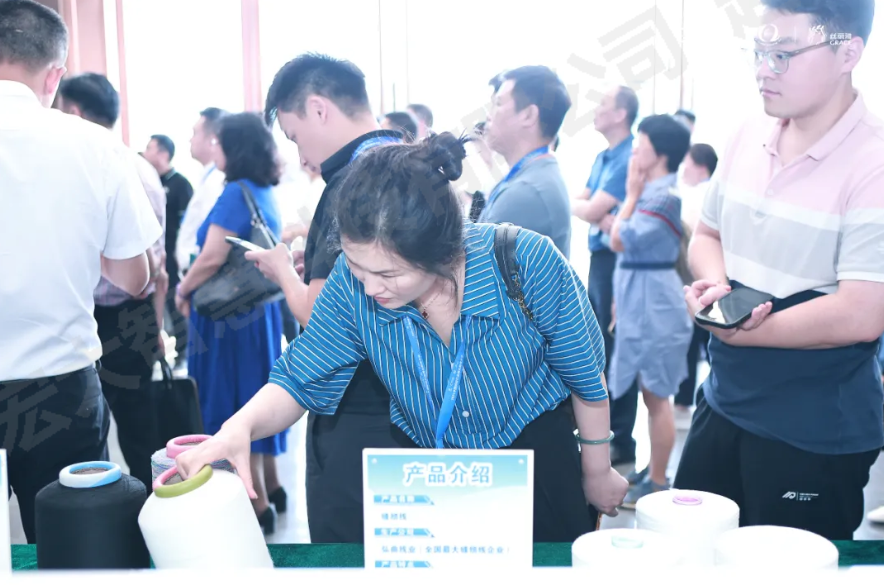
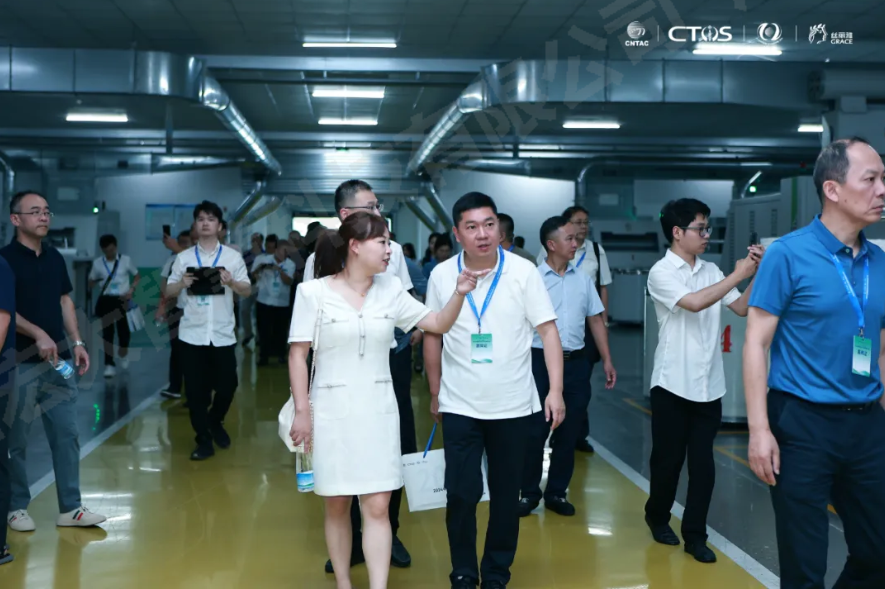
Related News
Tel:+86-519-88856666
Fax:+86-519-85158666
Email:czhongda@czhongda.com.cn
Company Address: No. 220, Taishan Road, High-tech Zone, Changzhou, Jiangsu Province, China

Tiktok

Official Account
Copyright © Changzhou Hongda Intelligence Technology Co., Ltd.


